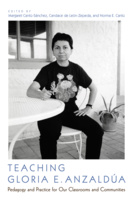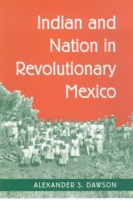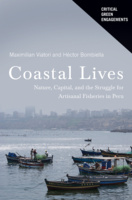The University of Arizona Press is the premier publisher of academic, regional, and literary works in the state of Arizona. They disseminate ideas and knowledge of lasting value that enrich understanding, inspire curiosity, and enlighten readers. They advance the University of Arizona’s mission by connecting scholarship and creative expression to readers worldwide.
Reflections of a Transborder Anthropologist
From Netzahualcóyotl to Aztlán
Cultura y Corazón
A Decolonial Methodology for Community Engaged Research
Activist Leaders of San José
En sus propias voces
A Marriage Out West
Theresa and Frank Russell’s Explorations in Arizona, 1900–1903
Traditional Arid Lands Agriculture
Understanding the Past for the Future
La Raza Cosmética
Beauty, Identity, and Settler Colonialism in Postrevolutionary Mexico
Colonial Legacies in Chicana/o Literature and Culture
Looking Through the Kaleidoscope
Colonial Legacies in Chicana/o Literature and Culture traces the development of Chicana/o literature and cultural production from the Spanish colonial period to the present. In doing so, it challenges us to look critically at how we simultaneously embody colonial constructs and challenge their legacies.
Binational Commons
Institutional Development and Governance on the U.S.-Mexico Border
Teaching Gloria E. Anzaldúa
Pedagogy and Practice for Our Classrooms and Communities
Conserving Migratory Pollinators and Nectar Corridors in Western North America
A Desert Feast
Celebrating Tucson's Culinary Heritage
This book offers a food pilgrimage, where stories and recipes demonstrate why the desert city of Tucson became American’s first UNESCO City of Gastronomy. You’ll meet the farmers, small-scale food entrepreneurs, and chefs who are dedicated to making Tucson taste like nowhere else.
Innocent Until Interrogated
The True Story of the Buddhist Temple Massacre and the Tucson Four
Decolonizing Latinx Masculinities
Oysters in the Land of Cacao
Archaeology, Material Culture, and Societies at Islas de Los Cerros and the Western Chontalpa, Tabasco, Mexico
America's Early Whalemen
Indian Shore Whalers on Long Island, 1650–1750
Coastal Lives
Nature, Capital, and the Struggle for Artisanal Fisheries in Peru
Planetary Astrobiology
Fighting for Andean Resources
Extractive Industries, Cultural Politics, and Environmental Struggles in Peru
Fighting for Andean Resources offers a singular contribution to the literature critiquing monolithic views of nation-state dynamics and globalization. Vladimir R. Gil Ramón examines the protocols of accountability and the social critique of the application of environmental impact assessments and safeguard policies. His analysis reveals the complex mechanisms for legitimizing decision-making and adds to an understanding of everyday state-nation conflicts and negotiations.





















